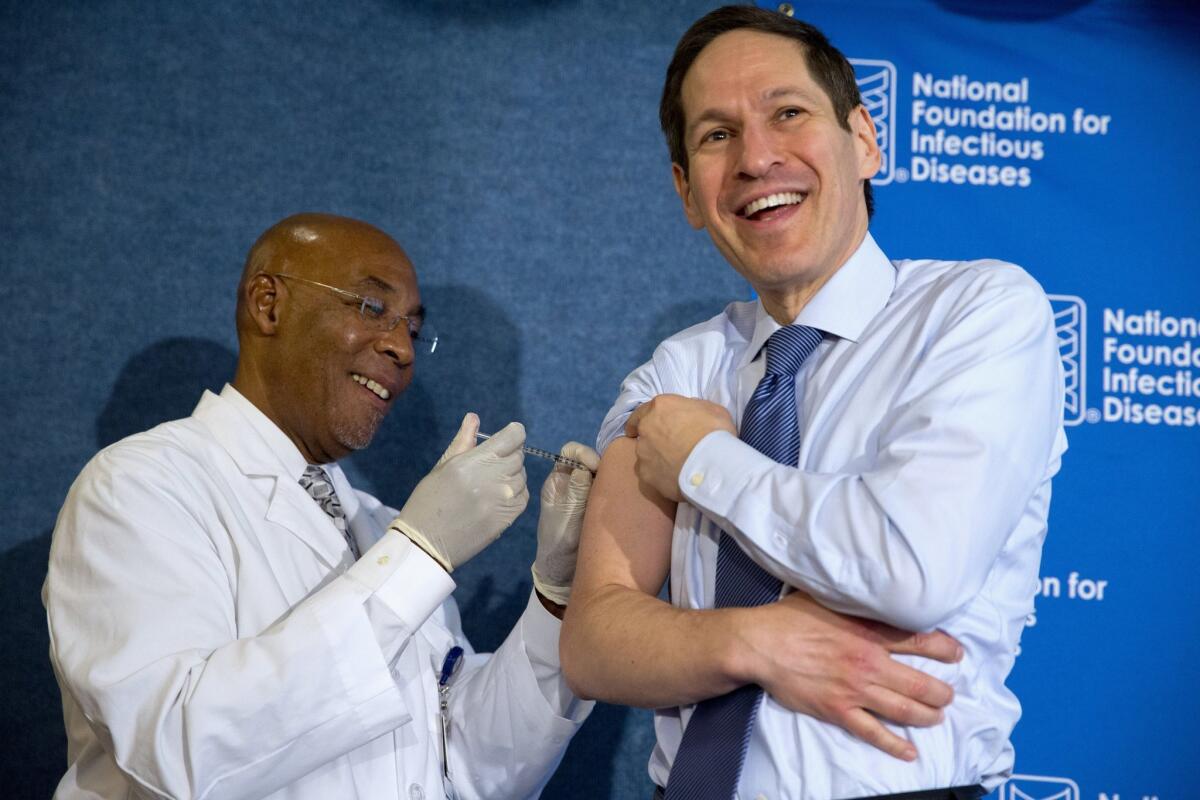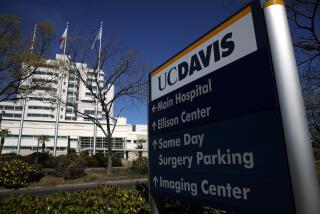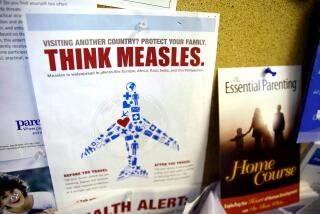Vaccines required for daycare workers under new California law

Dr. Tom Frieden, director of the U.S. Centers for Disease Control and Prevention, right, laughs as he receives a flu shot from nurse B.K. Morris in Washington.
A new California law will require daycare workers to have vaccinations for measles and whooping cough by next year.
The law was approved this week by Gov. Jerry Brown nearly a year after California’s worst measles outbreak in 24 years began at Disneyland, infecting more than 130 California residents and more than two dozen other people who resided out of state.
The outbreak highlighted how measles was not just a risk to children: it was a danger to people of all ages. A Los Angeles Times story in February reported how more people are entering adulthood without being fully vaccinated, a change from previous generations as childhood measles vaccinations have dropped over the last dozen years.
During the outbreak, some organizations began to take steps to require vaccinations for adults. After eight infants at a KinderCare daycare center in a Chicago suburb fell ill with measles, the nationwide chain of 1,500 facilties said it would begin requiring measles vaccines for all staff working with babies under 15 months old.
The University of California also announced that it will for the first time require proof of four immunizations, including for measles, besides an existing requirement for Hepatitis B vaccine.
The author of the bill, state Sen. Tony Mendoza (D-Artesia), said the new law, SB 792, would protect lives.
“We must do everything in our power to protect California’s children,” he said in a statement released Sunday. “If this new law can prevent the loss of even one child due to a communicable disease, then it will be considered a success. Because one child’s death is one too many, especially when it may be preventable.”
The law, which passed the Senate 34 to 3 and the Assembly 60 to 16, requires employees and volunteers at a daycare center to be immunized against the whooping cough and measles by Sept. 1, 2016.
Workers can be exempted from the requirement by obtaining a doctor’s note, indicating a medical reason why the vaccine cannot be provided, such as if a worker has a weak immune system or is undergoing chemotherapy.
The law also requires workers and volunteers to get the flu shot every year but also says they can decline it if they submit a written declaration saying they do not want the shot.
Earlier this year, the governor signed another inoculation measure that was one of the nation’s toughest vaccination laws, barring most vaccine exemptions for children going to daycare or school.
Previously, parents could still send their children to nursery school or class citing a religious exemption or declaring that vaccines contradicted their personal beliefs. Now, beginning with the 2016 school year, daycare and schoolchildren must either get the state-required vaccines as a condition of entry into school, or have a medical reason why an inoculation cannot be given, such as a physician-certified allergy to a vaccine ingredient.
Parents objecting to vaccinations can choose to send their children to private home-based schools or independent studies off campus.
Public health officials said a proliferation of waivers, many sought because of unfounded concerns about the safety of vaccines, helped fuel the Disneyland measles outbreak. Dr. Gil Chavez, the state epidemiologist, said in April that immunization rates in some schools are at 50% or lower, creating an ideal environment for the virus to spread.
One effort to overturn the new tough vaccine law fell short. A referendum drive headed by former Republican Assemblyman Tim Donnelly of San Bernardino County obtained only 233,758 signatures by the deadline, and it needed 365,660 signatures of registered voters to move forward.
Sometimes we write about public health and disease outbreaks and other times on earthquake safety, with a dash of drought and a sprinkle of El Nino. Read more on Twitter: @ronlin and @RosannaXia
Hoy: Léa esta historia en español
ALSO
Will USC employees drive more without a subsidy for transit passes?
Paper plates and plastic forks? Drought restriction rankles restaurants and diners
Gov. Jerry Brown targets his next priorities as he decides on final slate of bills
More to Read
Start your day right
Sign up for Essential California for news, features and recommendations from the L.A. Times and beyond in your inbox six days a week.
You may occasionally receive promotional content from the Los Angeles Times.








